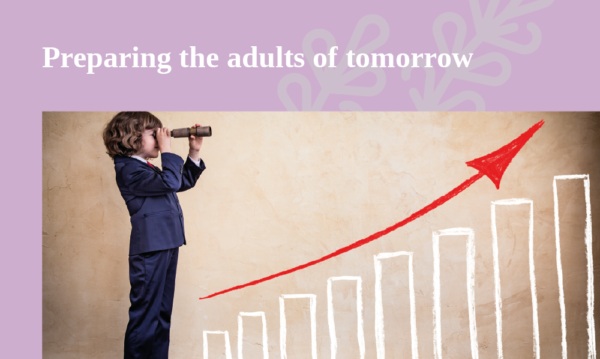Today’s children grow up in a dynamic and unpredictable world that asks them to cope with increasing and complex situations. Is the established way of life sufficient for the demands of the modern age? How can we properly empower and support our children? If we want them to be able to face any challenges, they need to be familiar from an early age with specific skills, which will gradually evolve.
When the evolution of technology simplifies procedures and optimizes effort, success and efficiency are taken for granted by many. Instead, perseverance and patience are valuable skills that help children keep trying, not giving up when they have difficulties or not having the desired result immediately, and trusting their abilities.
Today’s children are also called upon to develop two skills gradually: flexible thinking, which will allow them to adapt to the dynamic situations of everyday life and to change their course and way of thinking according to the circumstances, and creative imagination, perceiving the world in various ways and without prejudices, especially in the era when old state views and beliefs are now strongly doubted and revised.
A beneficial skill that children should use and develop is applying their pre-existing knowledge to new experiences-challenges. Utilizing their previous knowledge and experiences in everyday practice will increase their effectiveness in various circumstances while facilitating personal development by avoiding past mistakes or failures.
Finally, living in a world characterized by speed and ‘surface’ in human relations, we have ended up talking without listening by making, in essence, other monologues. An antidote to the absence of meaningful communication is the practice and adoption of active listening and empathy behaviors. Once acquired, these skills help children reduce the impact of prejudices and stereotypes on their judgment, gain a deeper understanding of their interlocutor’s way of thinking, feelings, and experiences, and come into contact with the humanitarian element inside them. Afterward, co-operation and teamwork are cultivated, essential ingredients for children to thrive as active members of society tomorrow by developing values, such as solidarity and altruism, which tend to disappear from today’s way of life.
The world is changing, continually diversifying, but the new generation’s bet remains the same: maintaining its human character and finding incentives for further development and improvement. In an increasingly automatic world, where the importance and role of the human factor become peripheral, continuous personal development and self-knowledge, starting from childhood, will forge a person both spiritually complete and highly effective and successful in an individual and collective level.


